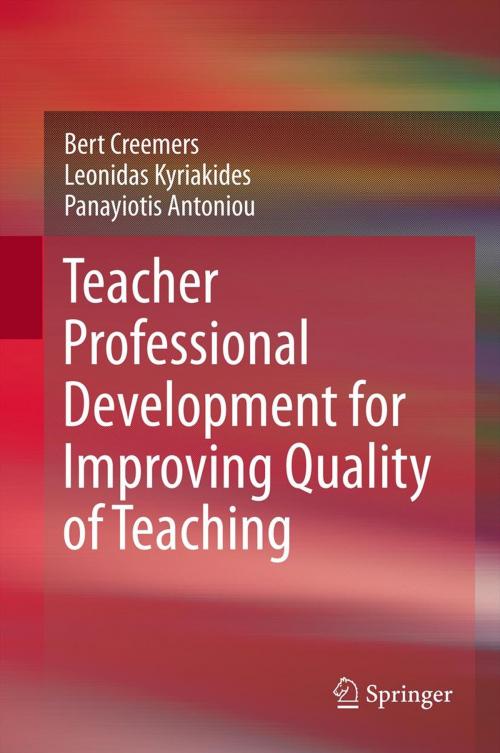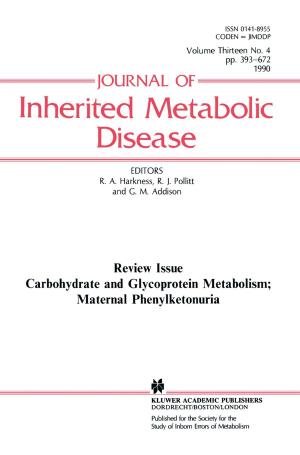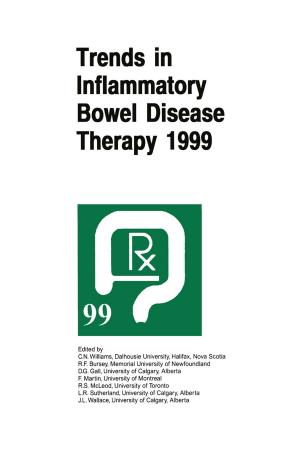Teacher Professional Development for Improving Quality of Teaching
Nonfiction, Reference & Language, Education & Teaching, Educational Theory, Evaluation, Educational Psychology| Author: | Bert Creemers, Leonidas Kyriakides, Panayiotis Antoniou | ISBN: | 9789400752078 |
| Publisher: | Springer Netherlands | Publication: | November 5, 2012 |
| Imprint: | Springer | Language: | English |
| Author: | Bert Creemers, Leonidas Kyriakides, Panayiotis Antoniou |
| ISBN: | 9789400752078 |
| Publisher: | Springer Netherlands |
| Publication: | November 5, 2012 |
| Imprint: | Springer |
| Language: | English |
This book makes a major contribution to knowledge and theory by drawing implications of teacher effectiveness research for the field of teacher training and professional development. The first part of the book provides a critical review of research on teacher training and professional development and illustrates the limitations of the main approaches to teacher development such as the competence-based and the holistic approach. A dynamic perspective to policy and practice in teacher training and professional development is advocated. The second part of the book provides a critical review of research on teacher effectiveness. The main phases of this field of research are analysed. It is pointed out that teacher factors are presented as being in opposition to one another. An integrated approach in defining quality of teaching is adopted. The importance of taking into account findings of studies investigating differential teacher effectiveness is argued. Another significant limitation of this field of research is that the whole process of searching for teacher effectiveness factor was not able to have a significant impact upon teacher training and professional development. For this reason it is advocated that teacher training and professional development should be focused on how to address grouping of specific teacher factors associated with student learning and on how to help teachers improve their teaching skills by moving from using skills associated with direct teaching only to more advanced skills concerned with new teaching approaches and differentiation of teaching. The book refers to studies conducted in different countries illustrating how the proposed approach can be used by policy and practice in teacher education. Specifically, the book provides evidence supporting the validity of the theoretical framework upon which this approach is based. Moreover, experimental and longitudinal studies supporting the use of this approach for improvement purposes are presented and suggestions for further research utilising and expanding the Dynamic Approach for teacher training and professional development are provided.
This book makes a major contribution to knowledge and theory by drawing implications of teacher effectiveness research for the field of teacher training and professional development. The first part of the book provides a critical review of research on teacher training and professional development and illustrates the limitations of the main approaches to teacher development such as the competence-based and the holistic approach. A dynamic perspective to policy and practice in teacher training and professional development is advocated. The second part of the book provides a critical review of research on teacher effectiveness. The main phases of this field of research are analysed. It is pointed out that teacher factors are presented as being in opposition to one another. An integrated approach in defining quality of teaching is adopted. The importance of taking into account findings of studies investigating differential teacher effectiveness is argued. Another significant limitation of this field of research is that the whole process of searching for teacher effectiveness factor was not able to have a significant impact upon teacher training and professional development. For this reason it is advocated that teacher training and professional development should be focused on how to address grouping of specific teacher factors associated with student learning and on how to help teachers improve their teaching skills by moving from using skills associated with direct teaching only to more advanced skills concerned with new teaching approaches and differentiation of teaching. The book refers to studies conducted in different countries illustrating how the proposed approach can be used by policy and practice in teacher education. Specifically, the book provides evidence supporting the validity of the theoretical framework upon which this approach is based. Moreover, experimental and longitudinal studies supporting the use of this approach for improvement purposes are presented and suggestions for further research utilising and expanding the Dynamic Approach for teacher training and professional development are provided.















